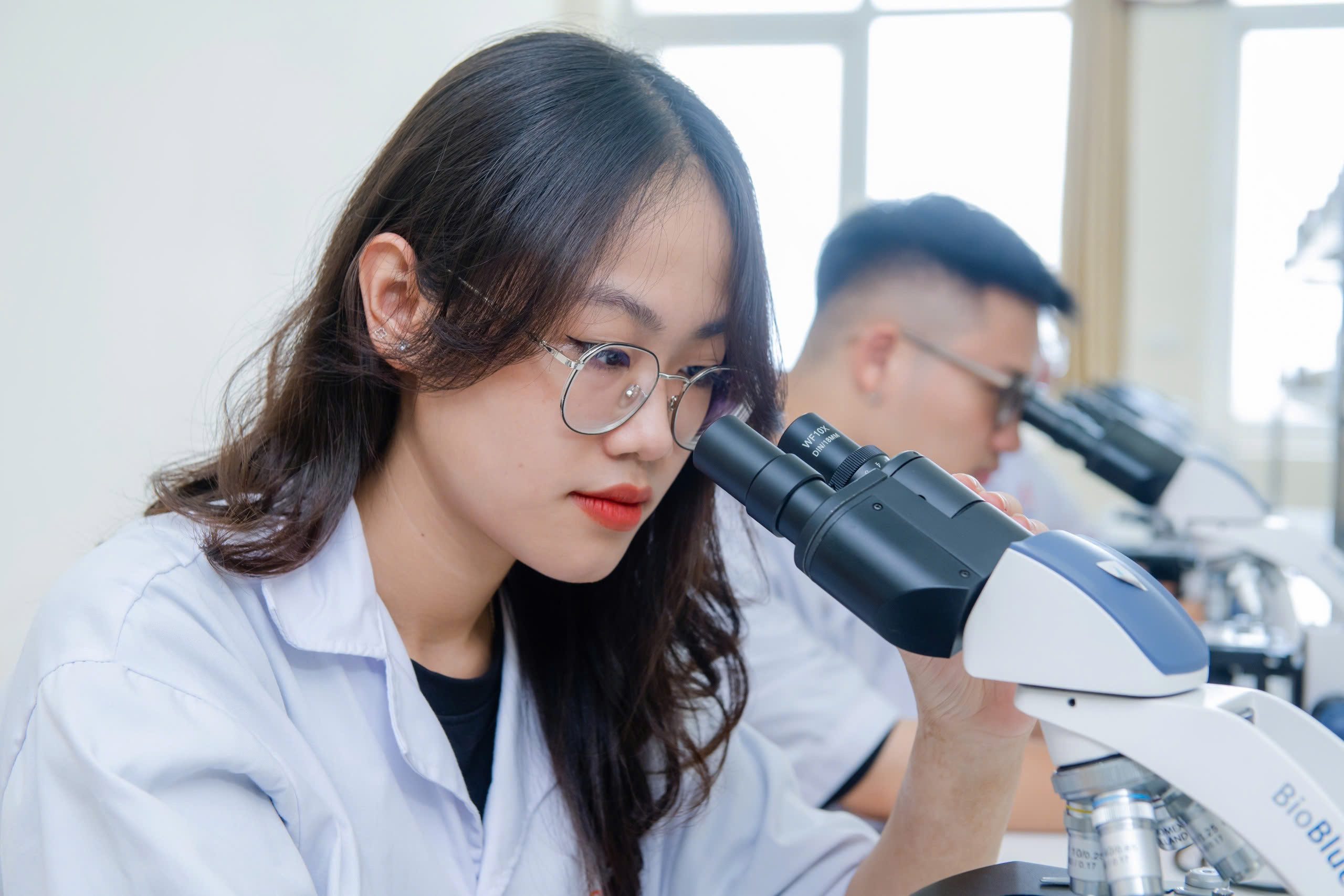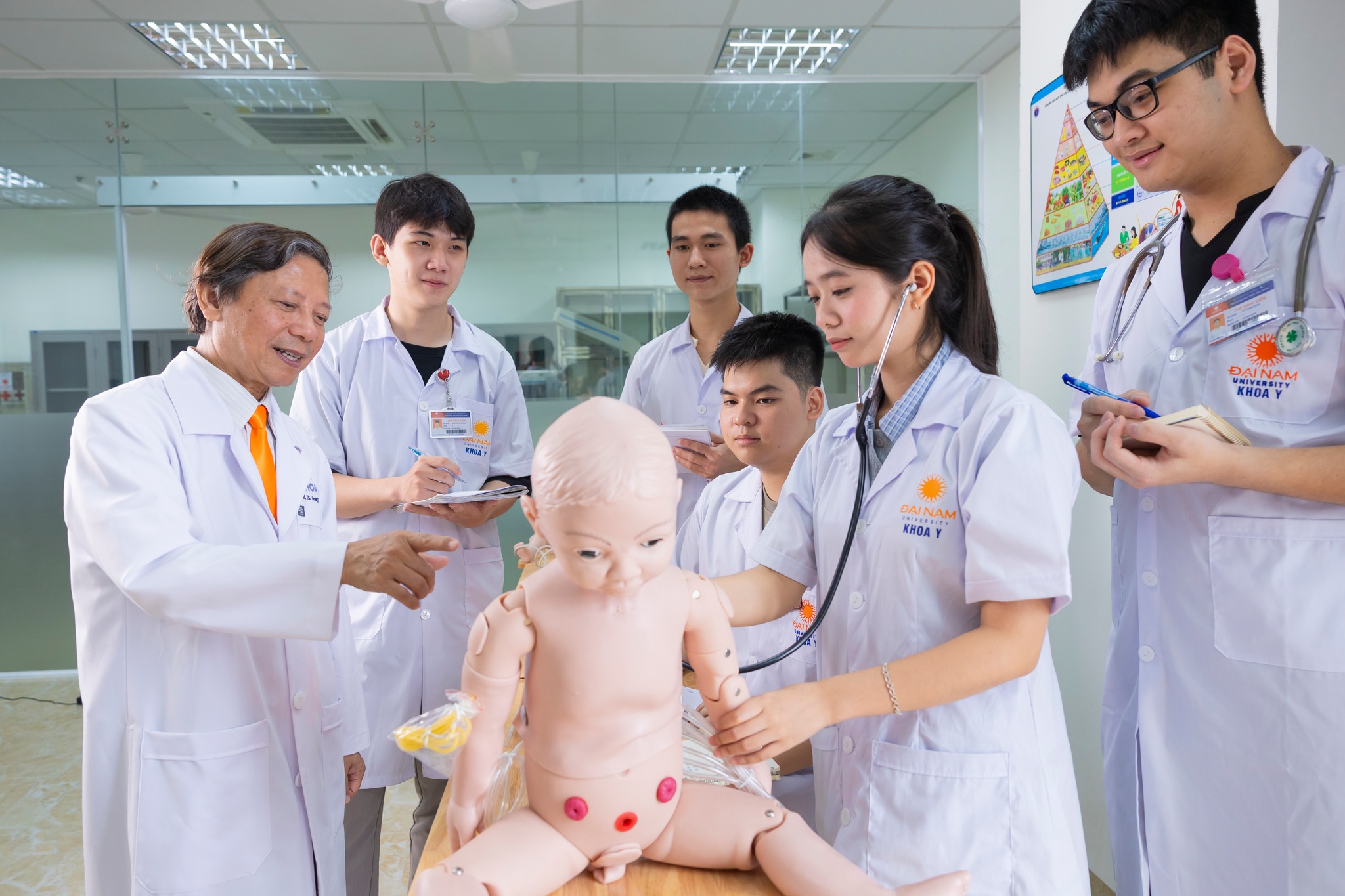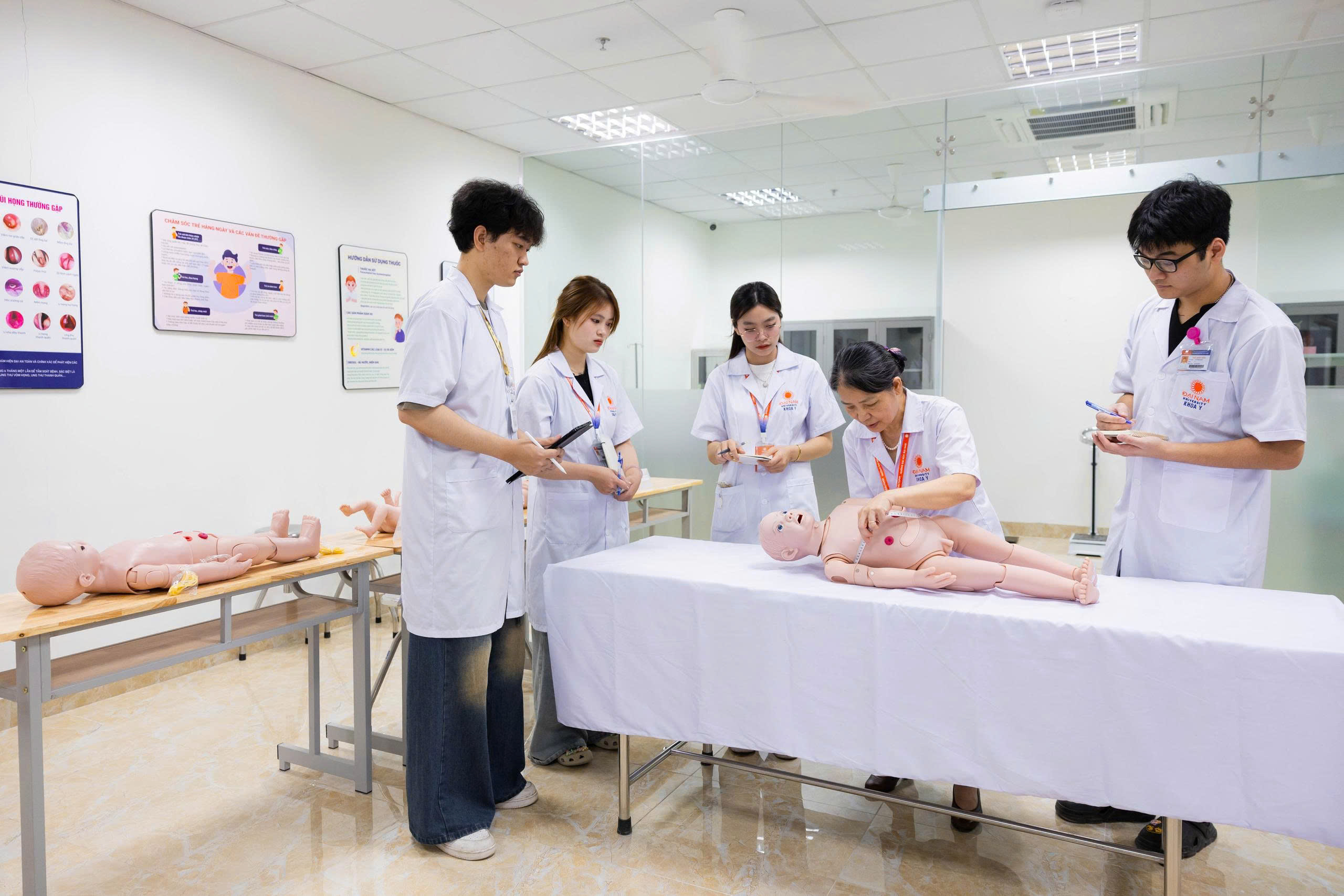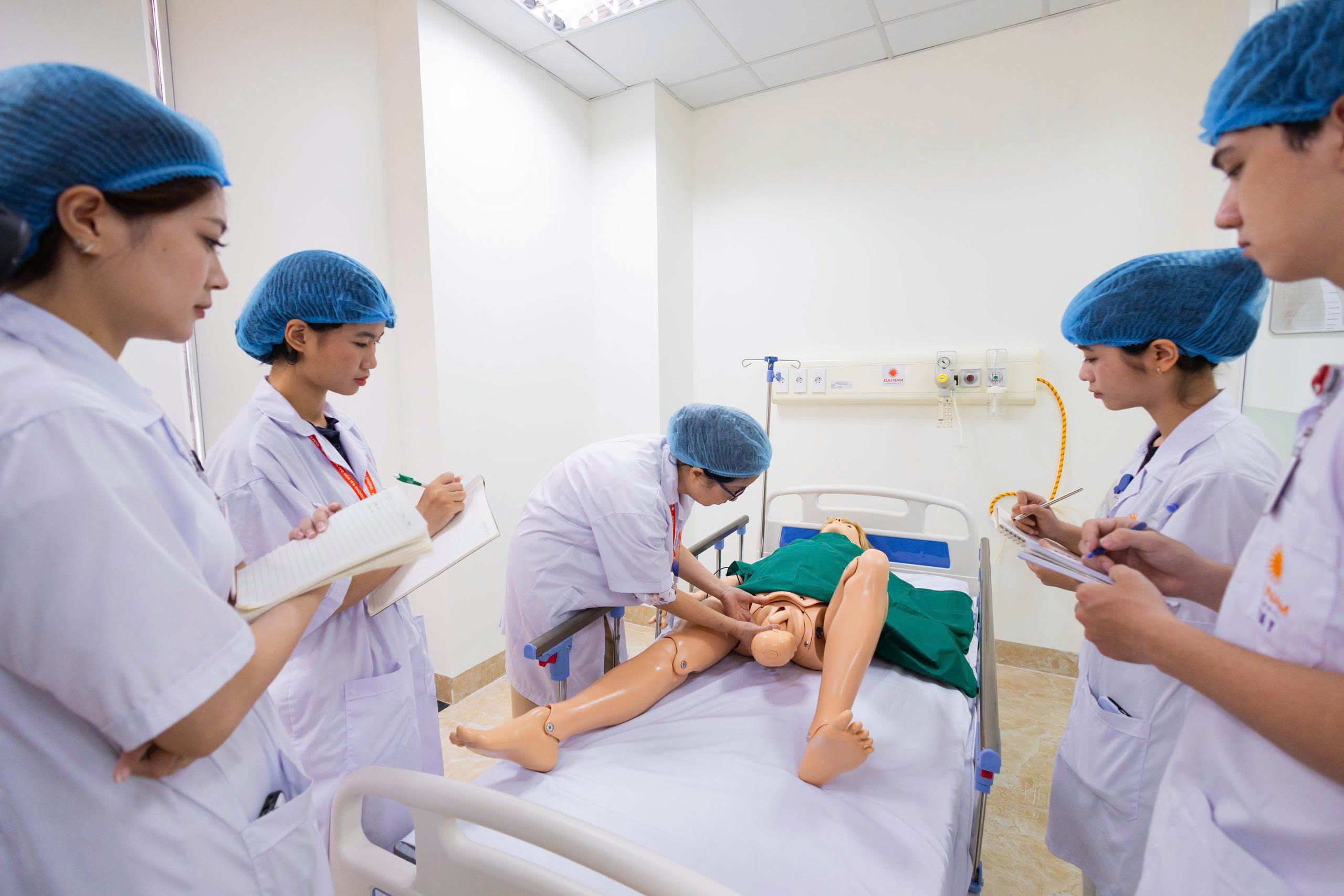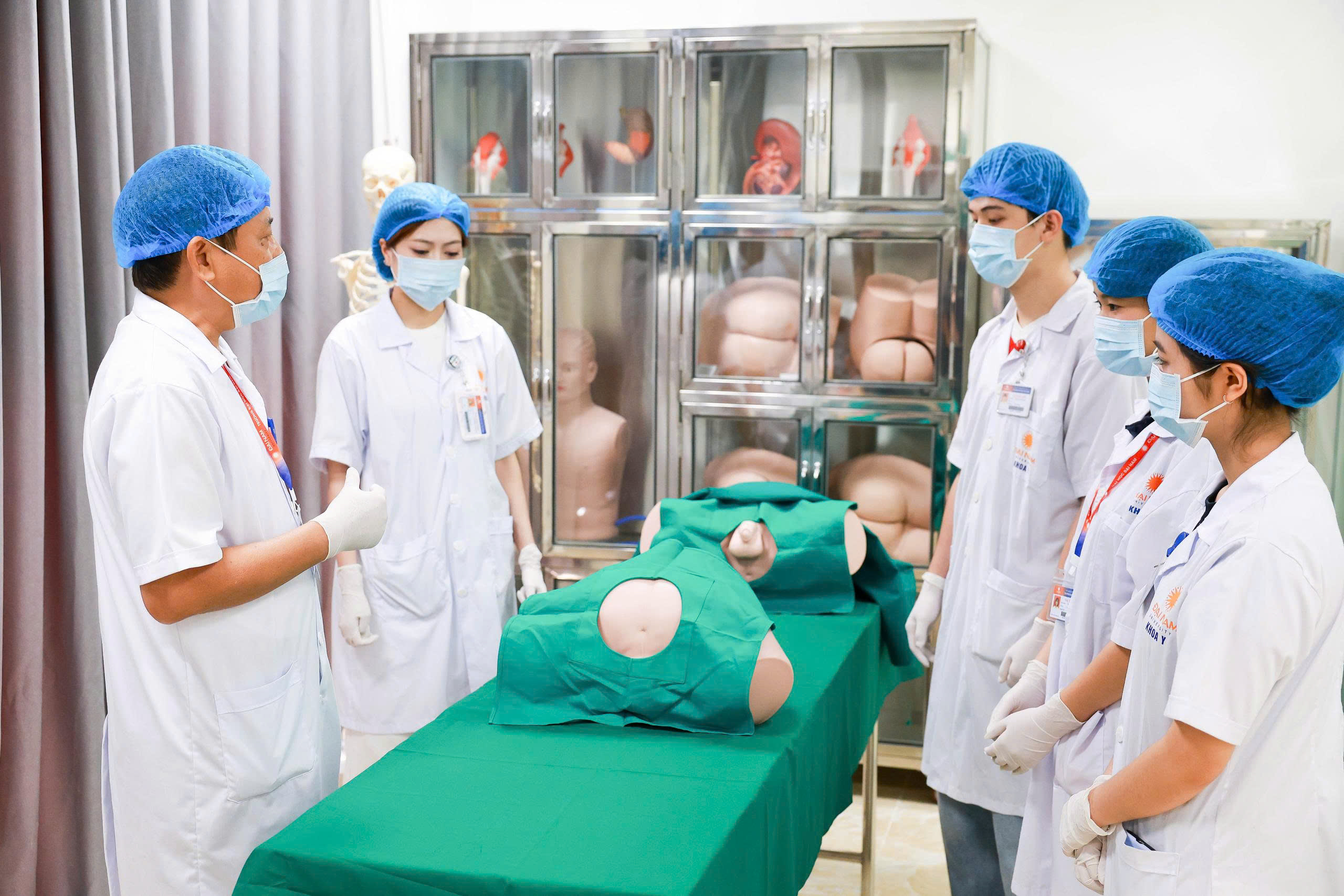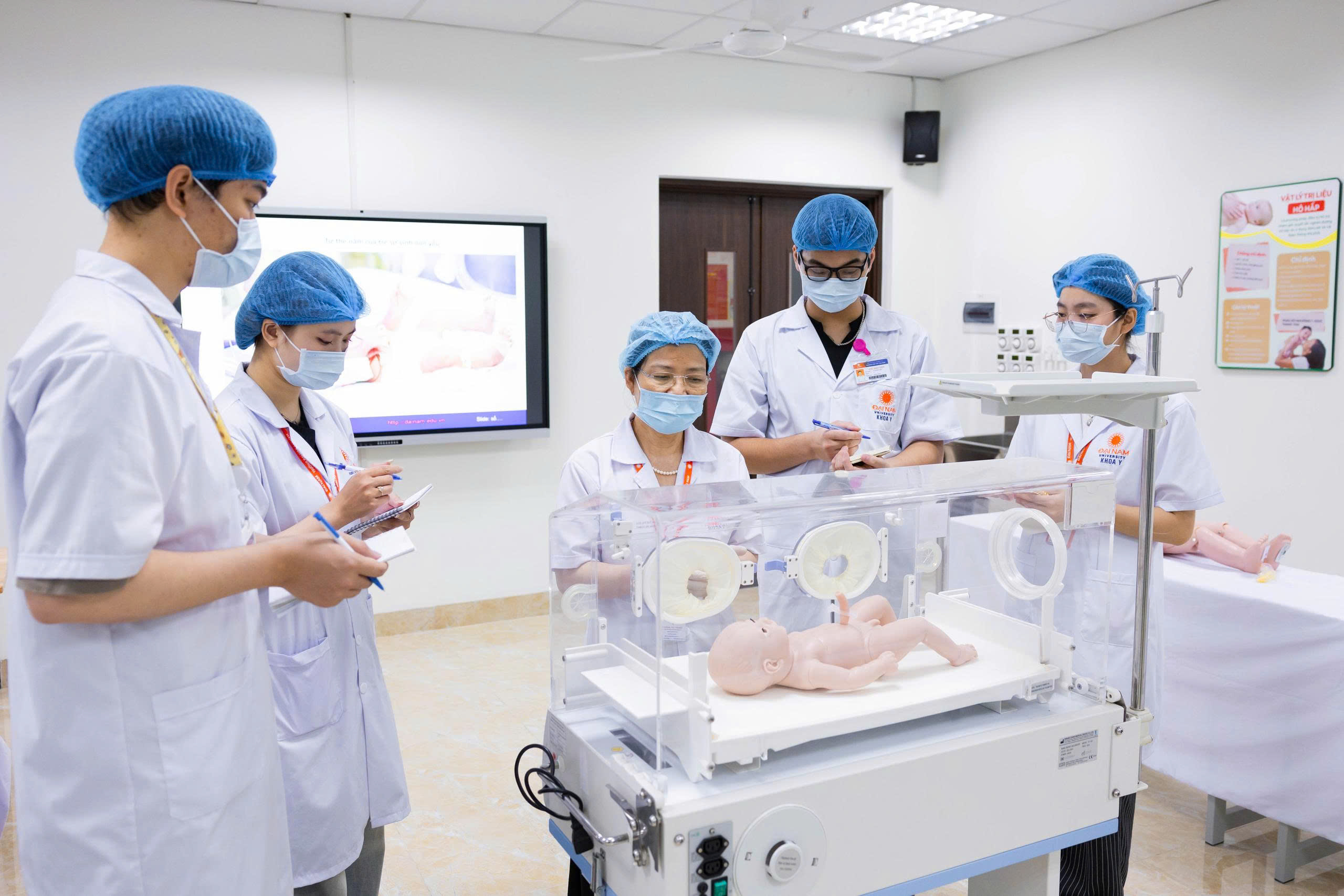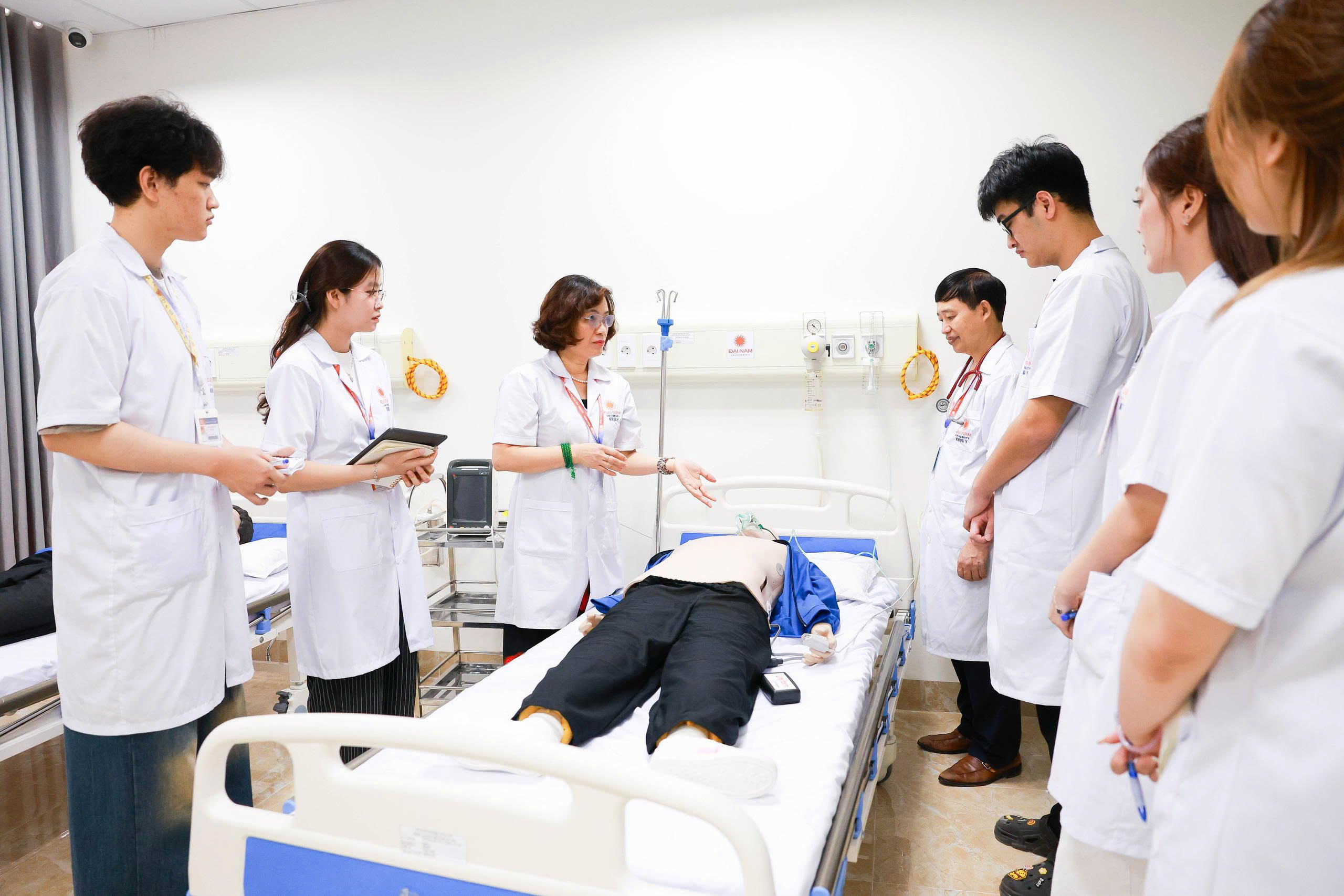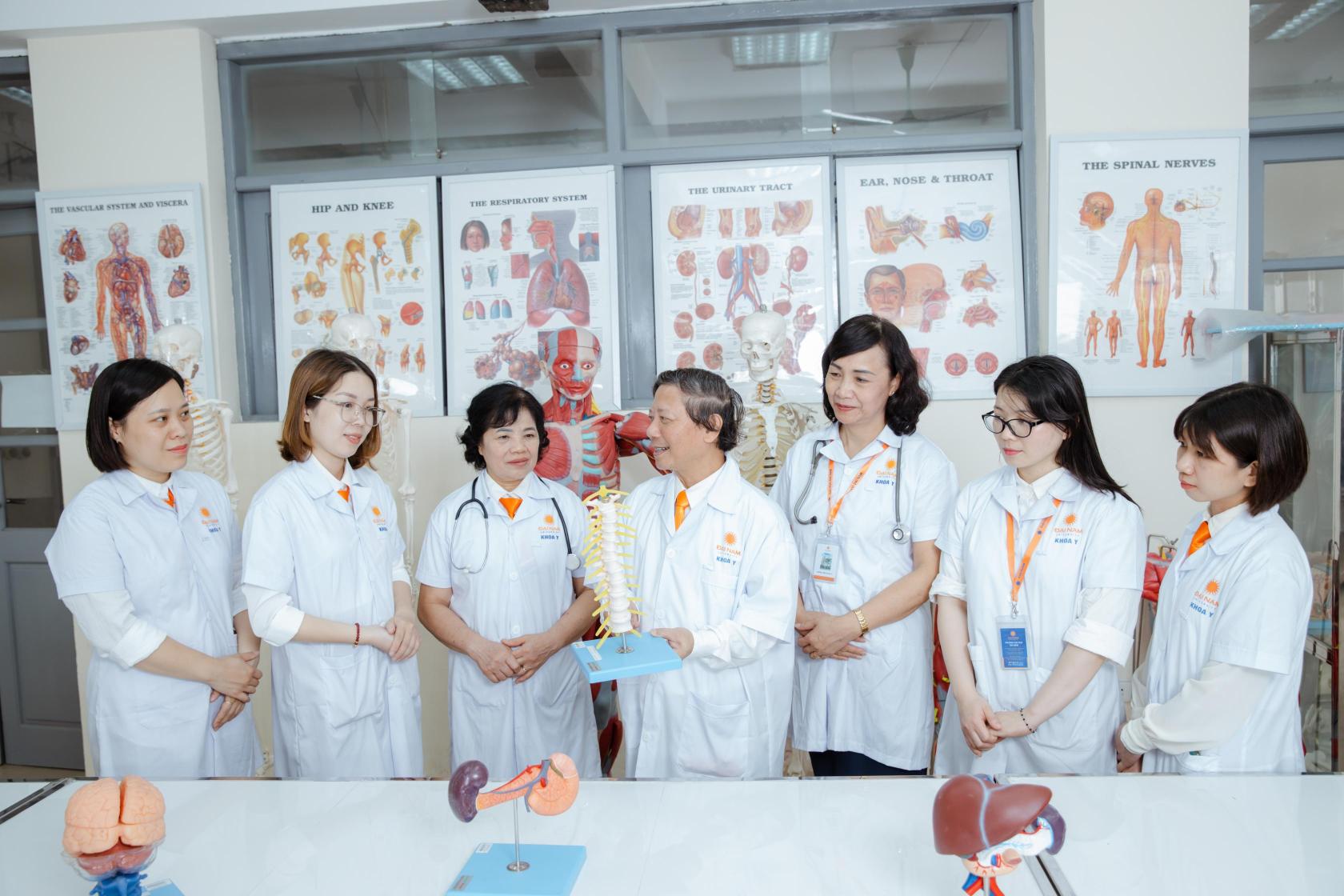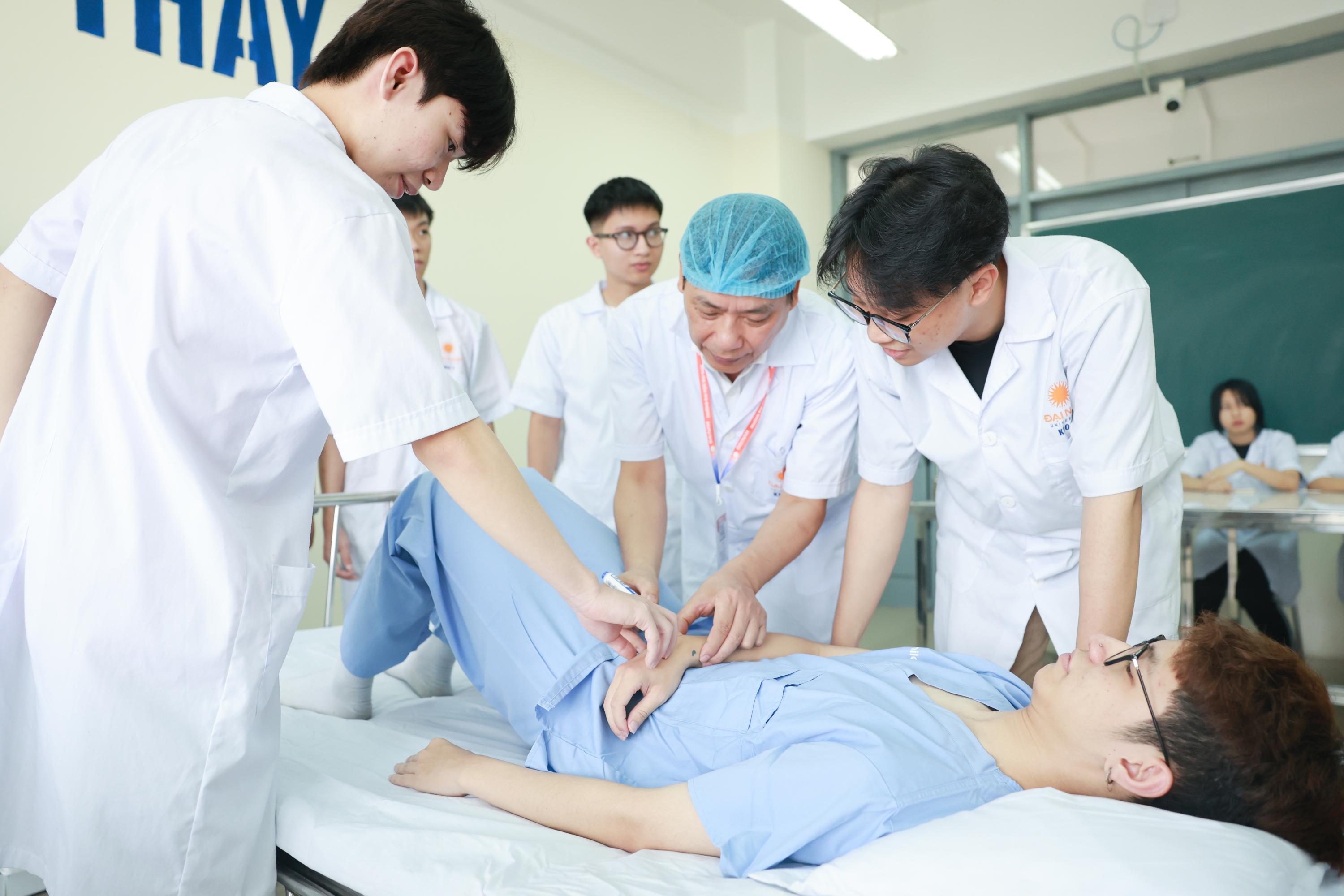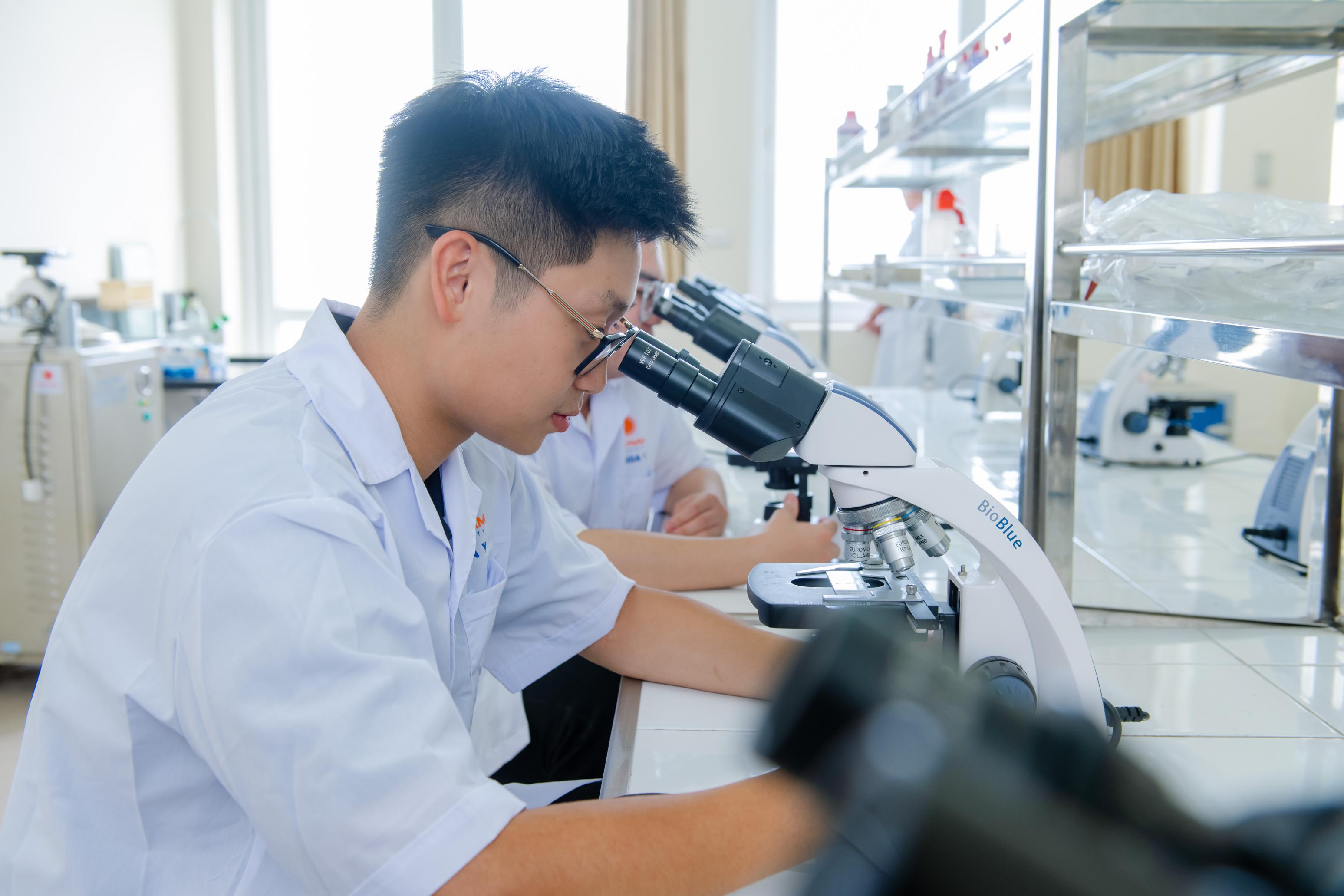Overview of the study field
The Faculty of Medicine provides knowledge in basic sciences, fundamental medicine, clinical medicine, traditional medicine, community health, scientific research, and English, enabling students to access and apply the latest advancements in medical science for the protection and care of people's health.
- Math, Physics, Chemistry (A00)
- Math, Chemistry, Biology (B00)
- Math, Literature, Biology (B03)
- Toán, Sinh, GDCD (B04)
- Math, Biology, English (B08)
- Toán, Hóa, Anh (D07)
- Math, Biology, Economic & Law Education (X13)
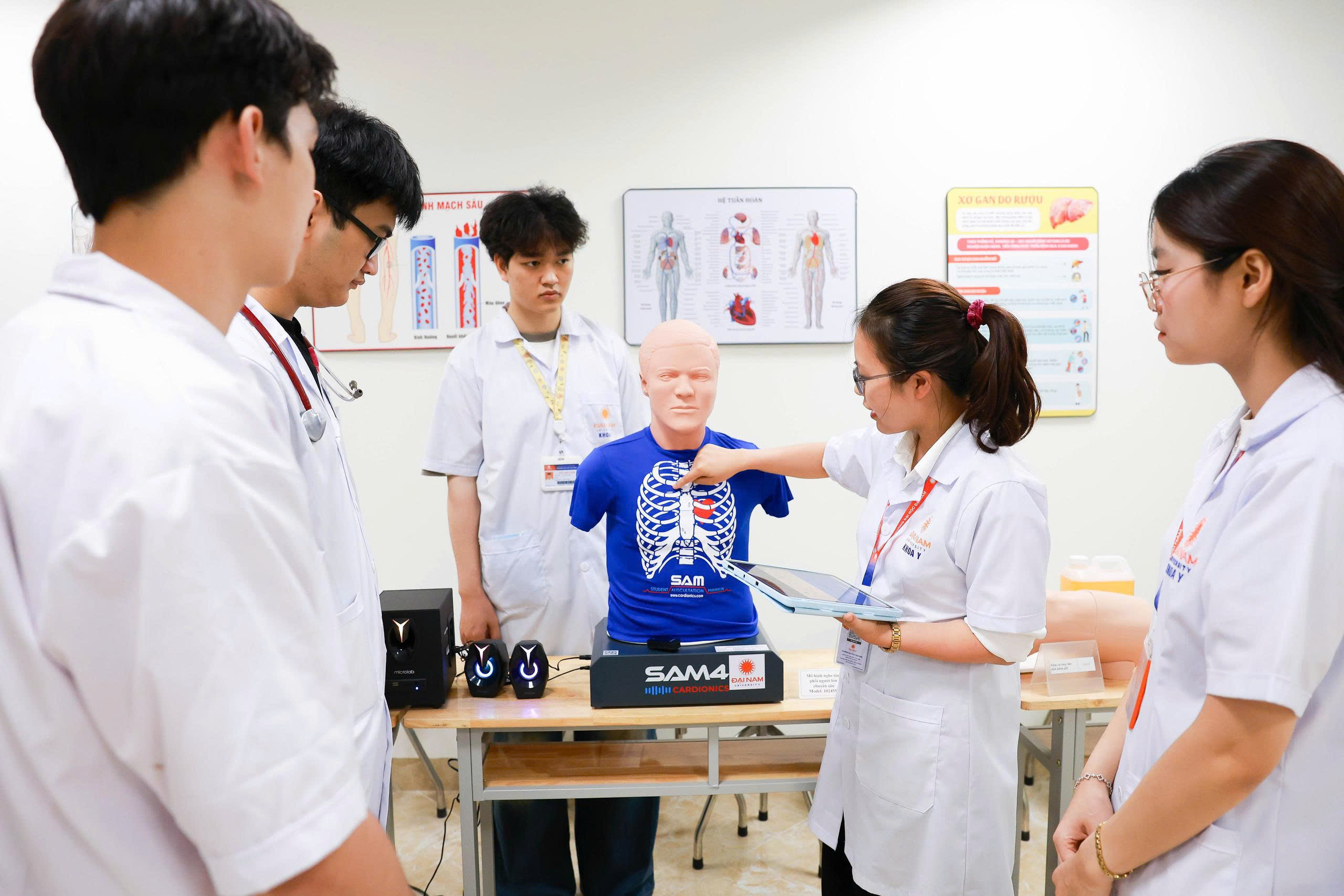
Highlights of the training program
The training program is closely aligned with practical experience, supported by a team of experienced and dedicated lecturers, modern practical and experimental equipment, and a network of reputable hospital partners.
Updated training program
- Apply the C.D.I.O method and base it on the medical doctor competency standards established by the Ministry of Health of Vietnam (2014).
- Comply with the national curriculum framework for undergraduate medical education established by the Ministry of Education and Training.
- Focus on educating students through in-depth, topic-based modules, enabling them to acquire comprehensive professional knowledge, proficient practical skills, and sharp critical thinking abilities.
Top-tier faculty
The faculty and staff of the Faculty of Medicine at Dai Nam University consist of Master's degree holders, PhD graduates, Associate Professors, and Senior Lecturers who have taught or are currently teaching at major Medical Universities across the country. They possess many years of experience and are deeply passionate about education and training.
Modern facilities
- The system of practice rooms meets the requirements for training in basic science and foundational medicine courses, including 14 rooms: Computer Science Lab, Inorganic Chemistry, Physiology, Molecular Biology and Genetics, Anatomy, Physiology, Biochemistry, Pathophysiology, Immunology, Histology, Pathological Anatomy, Microbiology, Parasitology, and Nursing.
- The faculty has a Pre-clinical Center for teaching medical skills (communication, patient history taking, skills in internal medicine, surgery, pediatrics, practical surgery, prenatal check-ups, and essential care for mothers and newborns immediately after birth).
- The lecture halls are fully equipped with computers, projectors, microphones, and air conditioning.
Graduate competencies
Graduate competencies
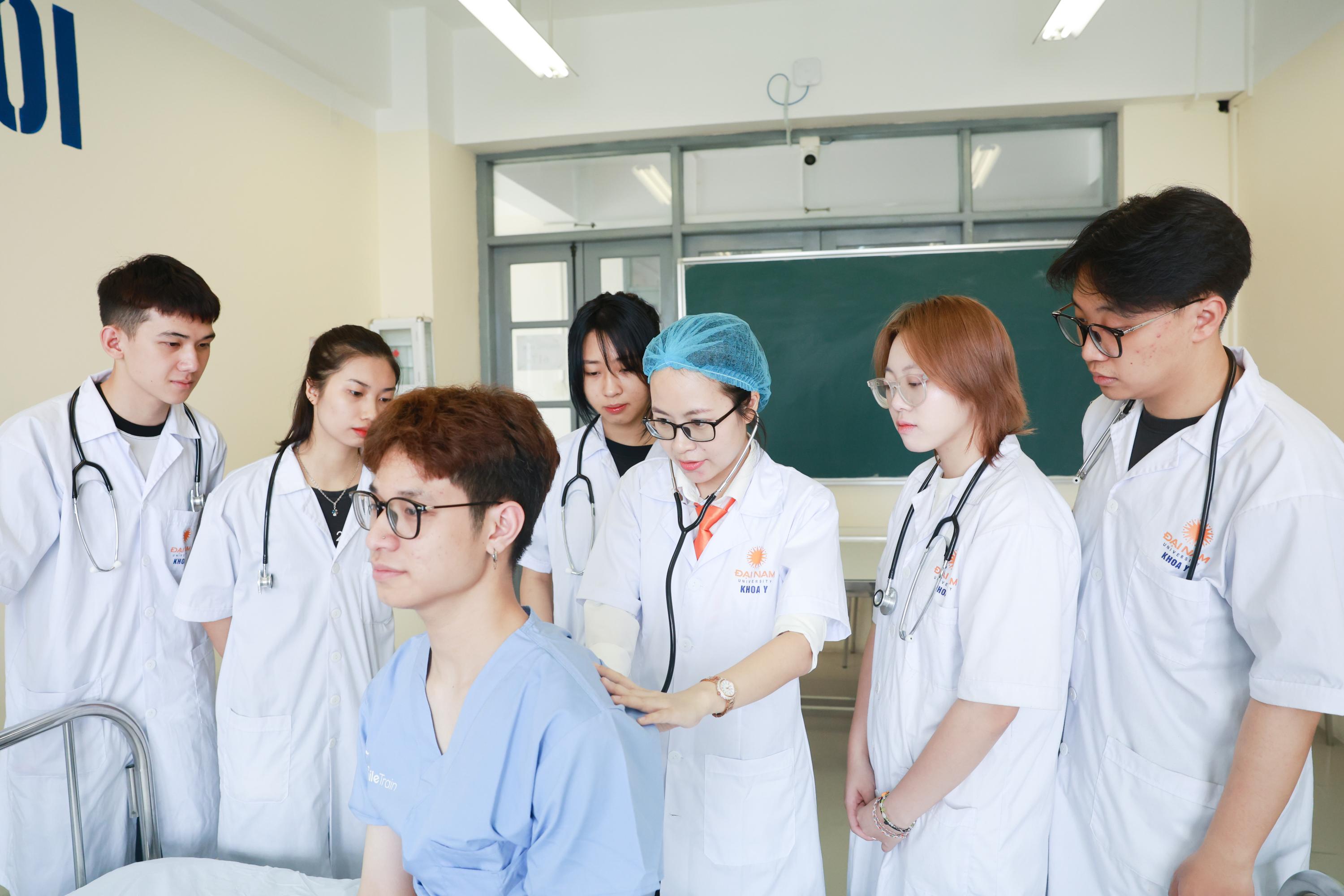
Curriculum structure
Learning and teaching methods
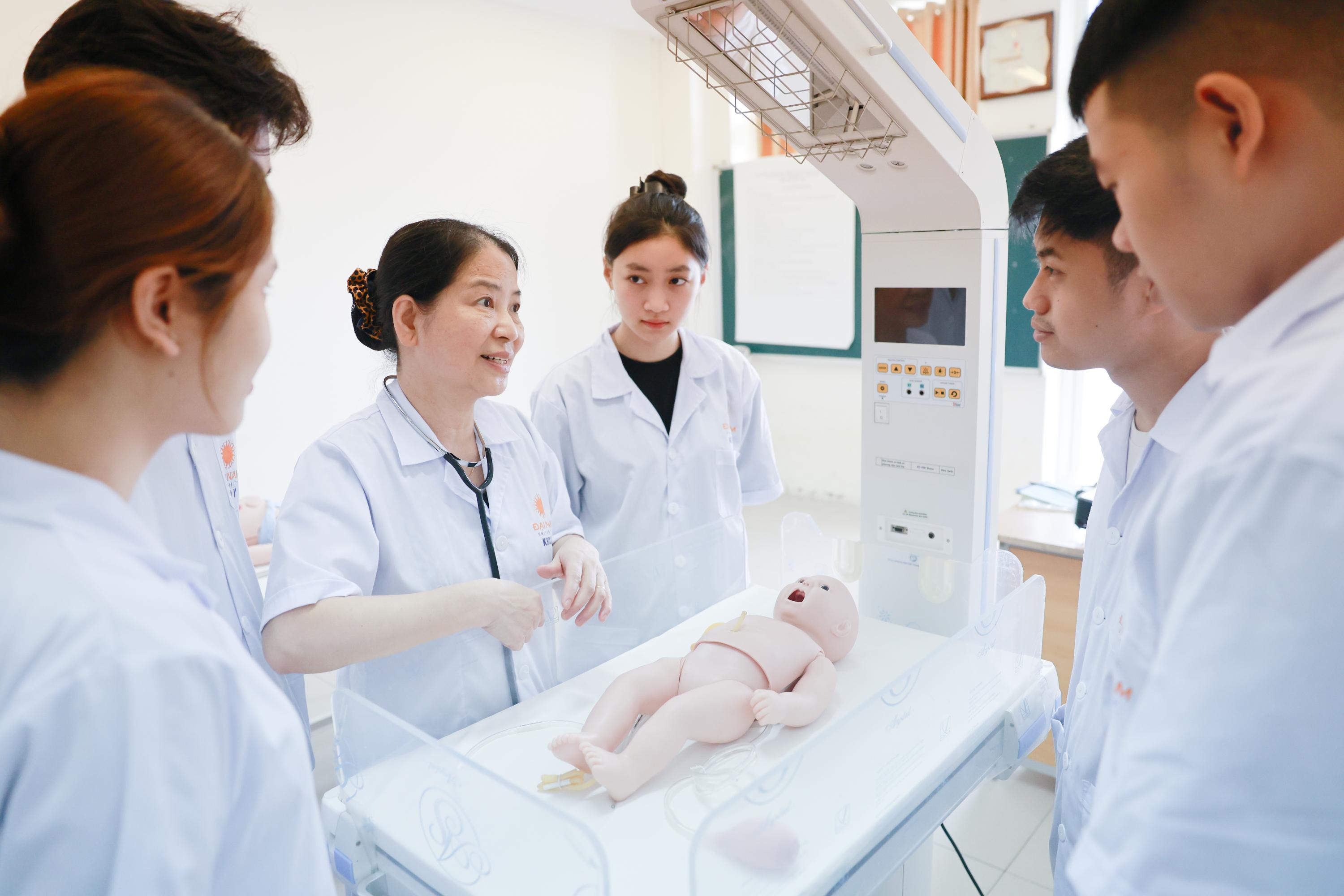
Job opportunities after graduation
-
Career Prospects for Graduates
- Doctors directly involved in treatment and management at both public and private hospitals.
- Lecturers in medical colleges and health vocational schools, as well as training management personnel, and teaching assistants at Medical and Pharmaceutical Universities.
- Specialists in research institutes in the fields of health sciences, medicine, biomedical sciences, and medical technology.
- Specialists in health management agencies.
- Specialists in governmental and non-governmental organizations.
-
Workplaces after graduation
- Work at the Ministry of Health, and hospitals ranging from district-level to central hospitals.
- Diagnose and treat common diseases within the scope of the technical classification regulations.
- Assist doctors in diagnosing, treating, and performing medical procedures at Health Stations.
- Identify and provide initial treatment for some emergency cases and common injuries.
- Participate in first aid for accidents and disasters occurring in the local area.
- Work at health centers, preventive health services, and guide the public on the safe and rational use of - edicines.
- Engage in the treatment and examination of patients from remote areas during volunteer missions.
- Participate in professional activities, provide consultations, and offer reproductive health and family planning services.
- Guide and counsel the public on disease prevention and hygiene practices.
- Care for and guide the rehabilitation of people with disabilities or injuries at community rehabilitation centers.
- Open a private general clinic.
- Teach and conduct research at universities and colleges offering medical programs.
-
Opportunities for further education and skill development after graduation
- Resident Doctor
- Specialist Doctor I
- Specialist Doctor II
- Master of Medicine
- Doctor of Medicine
-
Salary after graduation
- Around 10 - 15 million VND per month. The salary increases rapidly in accordance with skills and experience.
Admission methods and registration guidelines for 2026
Register for admission consultation 2026
scholarships and tuition support worth up to 55 billion VND

scholarships and tuition support worth up to 55 billion VND

